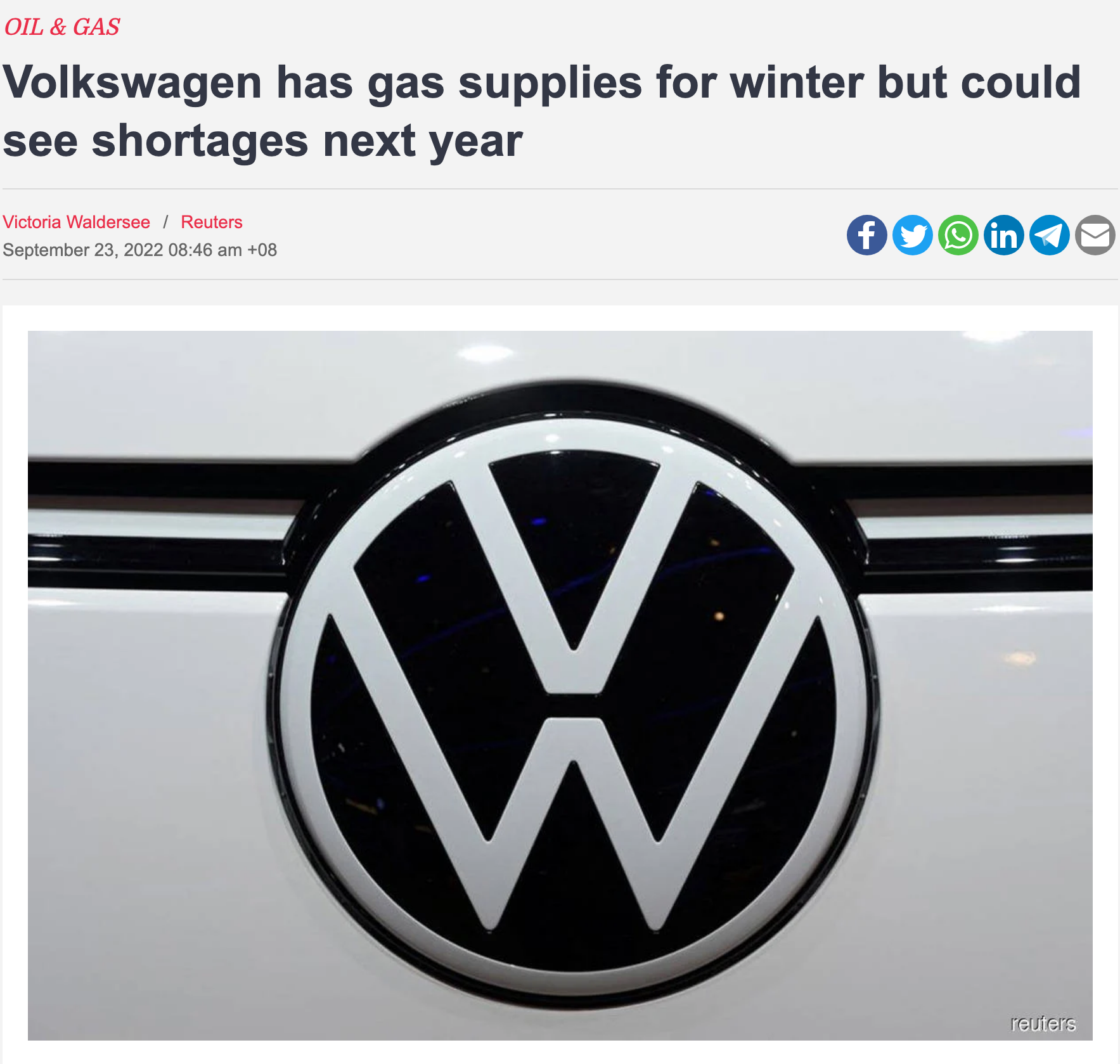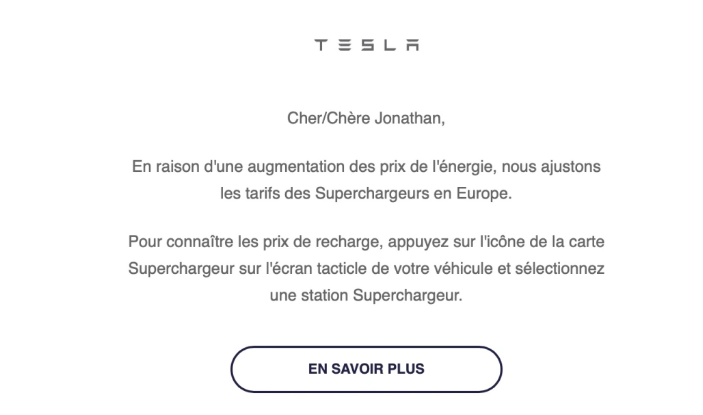In addition to Weibo, there is also WeChat
Please pay attention

WeChat public account
AutoBeta


2024-11-22 Update From: AutoBeta autobeta NAV: AutoBeta > News >
Share
AutoBeta(AutoBeta.net)09/23 Report--
The European natural gas crisis has triggered a knock-on effect, which is spreading in many industries. A senior Volkswagen executive said in an interview on Thursday (Sept. 22) that if Germany can continue to replenish its natural gas reserves, the company should be able to maintain production for the next five to six months, but rising energy prices and unstable supply chain networks pose risks to its global production. The executive warned that Volkswagen expects gas shortages from June 2023 if the Beixi No. 1 gas pipeline is not restored, based on Goldman Sachs' forecasts for German gas supplies.

Volkswagen executives have warned that suppliers in energy-intensive sectors such as glass and chemicals will not be able to tolerate rising gas and electricity prices for a long time. To prevent parts shortages from affecting production, Volkswagen plans to take short-term measures to increase inventory in warehouses and transport channels such as ships and trains, while medium-term solutions may include shifting production to other regions.
Since the outbreak of the conflict between Russia and Ukraine in February, Europe's natural gas supply has fallen into crisis and energy prices have soared, which has dealt a heavy blow to European industry. On September 2, Gazprom announced that the Beixi No. 1 natural gas pipeline, which had been suspended for three days, could not resume supply due to technical reasons, and would completely stop gas supply indefinitely. Gazprom expressed its position on when the pipeline would resume gas transmission, and denied that there was any political motive for the move.

It is understood that "Beixi No. 1" is a natural gas pipeline connecting Russia and Germany. The upcoming node outage of the pipeline in autumn and winter has affected many industries, including aluminum, zinc, chemical fertilizer, papermaking, and so on, halting production and reducing production. It has become a choice that European high-energy enterprises have to make.
As for the cut-off of Russian gas supply, the German Ministry of Economic Affairs issued a statement saying that the situation in the natural gas market is still tight, but the safe supply of energy has been ensured. A spokesman for the Ministry of Economic Affairs said: "We do not comment on Gazprom's statement, but we have seen Russia's unreliability in the past few weeks and continue to take firm measures to get rid of our energy dependence on Russia." We are now more prepared than we were a few months ago. "
Even so, Germany, which is heavily dependent on Russian pipeline gas, remains tough. German Chancellor Schultz said that even if Russia stops the supply of natural gas, Germany may "survive" this winter without a crisis. German Deputy Chancellor and economy Minister Harbeck also said that he does not expect to rely on Russian natural gas transported by Nord Stream this winter.
Russia has laid out a plan to cut natural gas exports over the next three years, highlighting the serious challenges facing European energy consumers. According to the draft plan, annual pipeline natural gas exports will fall by nearly 40 per cent to 125.2 billion cubic meters between 2023 and 2025.
Although Volkswagen says it is prepared for gas shortages this winter, it is still concerned about the impact of high gas prices on its suppliers. Volkswagen executives have warned that suppliers in energy-intensive sectors such as glass and chemicals will not be able to withstand rising gas and electricity prices for a long time. Thomas Steg, the company's director of external relations, said: "at present, the surge in natural gas and electricity prices is out of control and politicians must contain it. Otherwise, energy-intensive small and medium-sized suppliers will have major problems and will have to cut production or stop production. "
It is understood that Volkswagen has large factories in Germany, the Czech Republic and Slovakia, all of which are the European countries most dependent on Russian natural gas. A Volkswagen spokesman said that seaborne liquefied natural gas was more readily available in southwestern Europe or coastal areas of northern Europe, so the two areas could be beneficiaries of the production shift.

In addition to Volkswagen, other car companies have been affected to some extent. As a result of the conflict between Russia and Ukraine and European sanctions on Russian oil and gas, the cost of gasoline and electricity in Europe has soared this year, and the cost advantage of using electric cars has gradually diminished.
Tesla sent an email to car owners in Europe warning them that the price of the supercharging network would rise sharply again. In an email, Tesla blamed the price rise on the rise in European "energy prices": "due to the rise in energy prices, we are adjusting charging prices across Europe."

In the past, it was difficult to charge more than $5 or $10 for a full charge with Tesla super-charging piles, but now the cost of charging with super-charging piles has reached $0.50 per kilowatt-hour in many parts of Europe. this means that the cost of a full charge can be as high as $30.
One of the biggest advantages of electric cars is that their daily use costs are much lower than those of fuel-powered cars, because electricity is usually much cheaper than gasoline, but its price advantage is already very weak.
Welcome to subscribe to the WeChat public account "Automotive Industry Focus" to get the first-hand insider information on the automotive industry and talk about things in the automotive circle. Welcome to break the news! WeChat ID autoWechat
Views: 0
*The comments in the above article only represent the author's personal views and do not represent the views and positions of this website. If you have more insights, please feel free to contribute and share.











© 2024 AutoBeta.Net Tiger Media Company. All rights reserved.